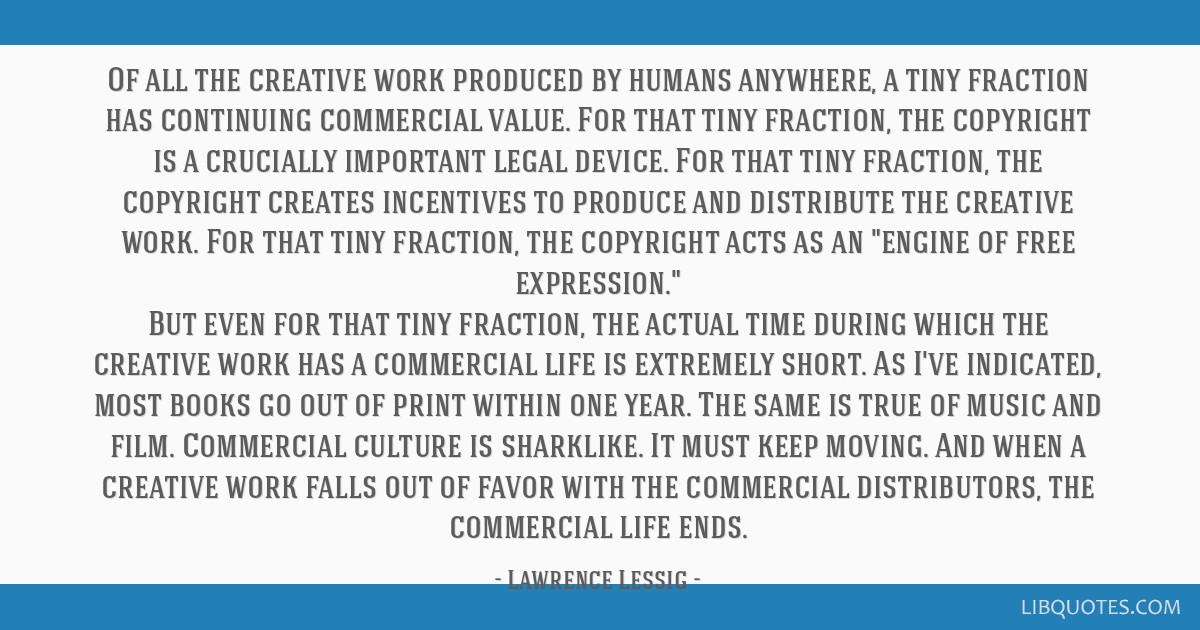Of all the creative work produced by humans anywhere, a tiny fraction has continuing commercial value. For that tiny fraction, the copyright is a crucially important legal device. For that tiny fraction, the copyright creates incentives to produce and distribute the creative work. For that tiny fraction, the copyright acts as an "engine of free expression."
But even for that tiny fraction, the actual time during which the creative work has a commercial life is extremely short. As I've indicated, most books go out of print within one year. The same is true of music and film. Commercial culture is sharklike. It must keep moving. And when a creative work falls out of favor with the commercial distributors, the commercial life ends.
Free Culture (2004)





















